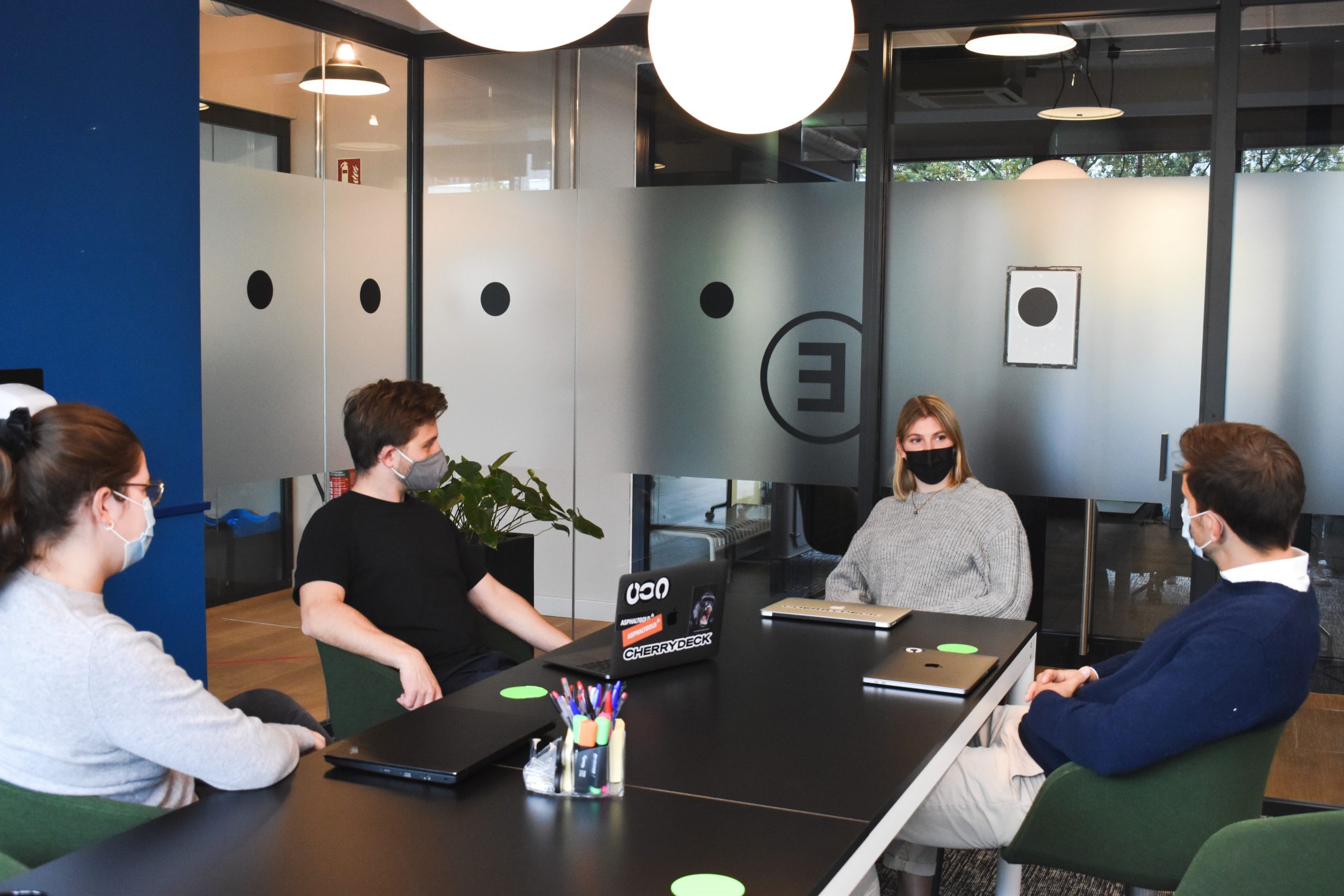Coronavirus and the following lockdowns threw millions of Britons into an unfamiliar and rather terrifying territory. Unable to see family and friends, travel abroad, or work on site our regular everyday routines were forcibly abandoned.
With the so-called ‘freedom day’ coming and going, Britons are once again trapped in a situation filled with drastic change. Renewed social expectations and the pressure that comes along with them are key components in the growing phenomenon, post-lockdown anxiety.
Feeling forced to mingle and socialise with friends, family and colleagues has caused many members of the public to be wary and worried of the lockdown roll-back. There is no clearer example of this than 36% of people saying they would be happy to remain inside, even once lockdown is lifted.
This sudden social pressure to mingle and interact with others whilst Covid is still a threat is causing many Britons to develop anxiety, largely regarding social events and socialisation. Knowing how to assist those who are suffering from anxiety is crucial, now more than ever. Being able to support yourself and others through such a tumultuous time is key to having a productive post-lockdown life, and keeping everyone as safe and happy as possible.

Returning to Work
For some, ‘freedom day’ will see little change in their working life, with many businesses deciding to keep offices closed in favour of working from home, there will be little to no alteration for them. That being said, many Britons will still see a return to their offices and workplaces, and therefore a risk of Covid transmission, which will terrify many.
Being in close proximity to your colleagues may help in some areas, with many people missing the social aspect of working in offices. However, for many it signals an increased risk of catching Covid.
Increasing chances of exposure to Covid would make anyone nervous, but this combined with renewed social expectations escalates that fear into anxiety. For many, this experience could be completely overwhelming and have a significant adverse effect on their mental health.
Issues of productivity and reliability may also be held against workers suffering from post-lockdown anxiety. It is easy to remain silent about issues such as these in a work environment, yet this only leads to further isolation from potential support. There are steps that can be taken to see that isolation and stigmatisation is less likely.
For one, asking about workplace changes and implementation of precautions is vital. Knowing whether screens, masks, wash points or distancing are being utilised does a lot to help dissuade the fear of catching Covid, therefore easing symptoms of anxiety.
Furthermore, speaking to your boss and colleagues about your worries and fears will help to formulate ways to tackle them. It also encourages others to raise their concerns and creates a much more empathetic work environment which makes working with anxiety much easier.
Developing a work routine you enjoy and feel comfortable in is another tool in fighting anxiety. Being able to go through your day without facing new changes consistently will help dissipate the feeling of losing control. Ensuring that you get enough sleep within this routine is vital, as it reduces stress and supports your immune system, which are key components of maintaining a healthy mind and body.

Dealing with Pressure from Friends and Family
One aspect of life that many are looking forward to with lockdown easing is interacting with friends and family once again. Being able to hug and hold loved ones is something that was impossible for months. Unfortunately, some friends and family oftentimes are not considerate of others’ concerns and worries. This can lead to strained relations and worsened anxiety, especially in the coming months.
Being badgered into going somewhere you are not comfortable with is not a new phenomenon, however with lockdown ending it is likely to become more common. With so many different opinions on what is appropriate regarding socialising and Covid, there are sure to be moments of disagreement and frustration between friends and family.
Ensuring that you communicate your own boundaries with your friends and family moving forward is vital in combating post-lockdown anxiety. Informing them of what you are comfortable with helps them to create plans that suit everyone, including yourself. Sitting your friends down and discussing your boundaries over a coffee is a great way to do this.
Attempting to make everyone in your social group go clubbing without discussing the idea first would most likely lead to someone’s boundaries being broken. This can be very distressing and uncomfortable for many, especially at times such as these. It is vital that you engage your friends in what they are comfortable with and discuss any issues before planning social events, peer pressure can be difficult to handle especially after lockdown.
Vocalising and communicating your whole circles’ opinions and needs will help make everyone comfortable and relaxed. As a friend or family member it is crucial you take your loved ones’ boundaries into consideration, especially if they are suffering from post-lockdown anxiety.
Furthermore, if friends or family members refuse to alter their plans to take into account your wishes do not be afraid to cancel on them. Keeping you and your mental health safe is a key component in alleviating the adverse effects of anxiety and should not be challenged by your friends and family.

Everyday Steps
The before mentioned actions in fighting post-lockdown anxiety have all been centred around work and social environments. There are also steps and actions you can apply in your everyday life which will help ease the burden of anxiety for yourself and others.
By slowly building up your actions towards more outlandish ones you can gradually ease yourself into new activities and events. Do not commit to stressful environments and actions from the get go, work your way up. This way you can record what you are comfortable with and what will take you more time to re-adjust to.
With the aforementioned routine, allow for some flexibility. This way if you are ever struggling with your anxiety you can spend some time doing what you love and what relaxes you. Furthermore, if the opposite is true and you want to branch out you can do so as well. Do not limit yourself to a rigid unalterable routine, allow yourself to change it depending on your situation.
Practising mindfulness and focusing on the present will also help you to unwind and relax. When you are stressed and suffering from anxiety it is easy to get caught up in things you cannot control. When this becomes common make sure to take some time to focus on yourself. Adopt some breathing exercises to help to separate yourself from uncertainties. Mindfulness is oftentimes the solution to overthinking, it helps to calm your mind by focusing on what you can change.
Keep a record of what triggers your anxiety as well as what helps to tackle it. Discuss this list with people you trust and find the common thread behind them all. This helps create a situation where you know what to avoid and what to go to if you ever feel anxious. Knowing your anxiety is half of the battle in tackling it.
Knowing yourself and your Situation
All of these tips and actions are only effective if you take time to focus on yourself. Putting aside enough time to be able to care and focus on your mental health can be difficult, but with lockdown easing and the accompanying concerns approaching, it is vital in ensuring that you are in the best headspace possible to tackle post lockdown anxiety.
Most importantly do not judge yourself or your loved ones’ too harshly in the coming months, it is a difficult time for Britons and we all deserve to be given room to grow and heal from what has been a turbulent few months.
If after all these steps you still find that yourself or someone you know is suffering heavily from anxiety, contact your doctor immediately and seek professional help and support.
